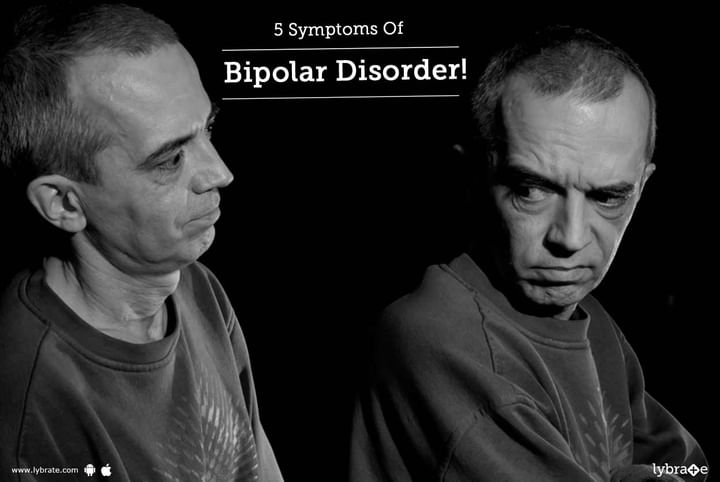5 Symptoms Of Bipolar Disorder!
Bipolar disorder is a condition where the patient may go through certain periods of extreme happiness and joy which is known as mania. On the other hand, there may be other periods where the patient may be extremely sad and depressed and even suicidal.
What is surprising is that bipolar disorder (BD) is very common. Some facts are:
- About 1 in 5 people being treated for depression are likely to have BD. Most cases of depression are identified as BD much later, sometimes after years.
- Diagnosis takes time, sometimes years together, before treatment specific for BD is initiated
- It is not a single issue but combined with multiple other psychiatric conditions (anxiety, behavioural issues, substance abuse, etc.) making it further difficult.
Symptoms:
As noted above, people with BD have two sets of symptoms. One set relates to depressive phase, and the other to a manic phase. Each of them could last for days, weeks, or sometimes months. The intensity of each is quite high, with depressive phase even leading to suicidal thoughts and the manic phase leading to grandiose ideas. Read on to know more about the symptoms, which can be classified into major categories as below.
- Behaviour changes: The manic phase could include extreme aggression, agitation, restlessness, racing thoughts, sexual hyperactivity, and extreme impulsivity. The person gets extremely talkative, is very uninhibited, makes big claims, and has grandiose ideas, feels very superior to peers, and is very prone to risky behaviours. Depressive phase could include extreme irritability, self-harming ideas or actions, and prolonged crying spells.
- Mood changes: The anxiety phase could include anxiety along with euphoria and elated sense of well-being. The depressive phase includes apprehension, hopelessness, lack of general interest in life, anger, apathy, and general discontent.
- Sleep patterns: The manic phase could be including prolonged periods of sleep, while the depressive phase could include periods of sleeplessness. The person could be depressed about small things and lose sleep over it.
- Cognitive changes: There is a false sense of grandiosity during the manic phase and racing thoughts. People could have difficulty in keeping pace with the person who has BD. The depressive phase includes lack of concentration, reduced the pace of thinking and action, and a lot unwanted, non-productive thoughts.
Bipolar disorder requires a lot of support from close associates in addition to medications. Watching out for early signs and early intervention is very helpful. If you wish to discuss about any specific problem, you can consult a Psychiatrist.



+1.svg)
